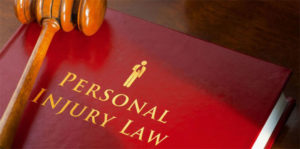Understanding Damages
 One of the most frequent questions that I receive from clients and potential clients considering legal action is what type of compensation they might expect to see from a suit. These types of questions are referring to the legal term of damages.
One of the most frequent questions that I receive from clients and potential clients considering legal action is what type of compensation they might expect to see from a suit. These types of questions are referring to the legal term of damages.
Damages are compensation for losses suffered by a party. In many cases, these might be monetary compensation for losses. The individual or organization that is found culpable for causing these damages is made to compensate the party that has suffered the loss. Damages is an important legal concept, as a party will not be compensated unless actual loss is suffered.
Types of Damages
There are three generally recognized types of monetary damages. The first type is compensatory damages. Compensatory damages can be thought of as “actual damages” as they seek to make the injured party whole from the losses suffered. For a personal injury case, this would include financial compensation for lost income and medical bills.
The second type of damages is referred to as general damages. These damages are less tangible than compensatory damages, as they seek to make the party whole from losses such as pain and suffering or emotional distress, disfigurement, or loss of enjoyment. Other general damages can be to remedy the loss of future gains. For example, an injured person who is now no longer able to work, may pursue general damages for the loss of future income. A personal injury attorney will consider factors such as age, past compensation history, and the extent of the person’s injuries in determining what type of future losses may be sought to be covered in general damages.
Finally, in some exceptional situations, punitive damages may be pursued. Punitive damages are sometimes awarded in situations where the actions of the defendant are found to be egregious, willful, or recklessly negligent. Punitive damages are not to make up for losses of the claimant, but to punish the defendant for particularly intentional and heinous acts. For example, a victim in a car accident case may be able to pursue punitive damages if the driver knowingly decided to drive while intoxicated. Or, if a health care practitioner in a medical malpractice case acted with willful or reckless indifference to the safety of their patient. A jury is required to weigh the character of the act, the nature and extent of the harm, and the wealth of the defendant to determine an appropriate punitive damages award, and certain limits may apply.
Take the first step
If you have suffered a loss due to the action or negligence of another party, you may have questions regarding the damages that you are able to pursue. Take the first step and contact the Wieand Law Firm, LLC. The attorneys at the Wieand Law Firm, LLC will take the time to listen sympathetically and provide the expert counsel you need to act. To speak with a Philadelphia, PA personal injury lawyer, call the Wieand Law Firm, LLC today at 215-666-7777 to receive a free, no-obligation consultation.
Disclaimer: This article is for informational purposes only and is not legal advice.